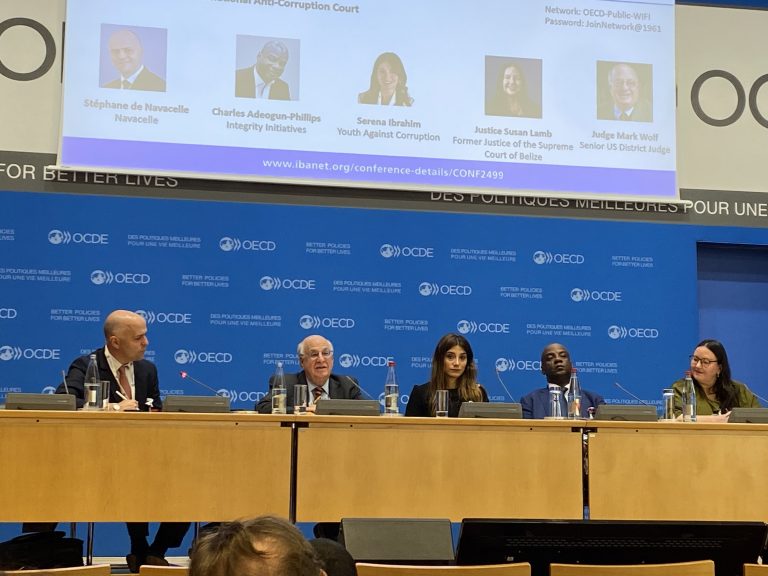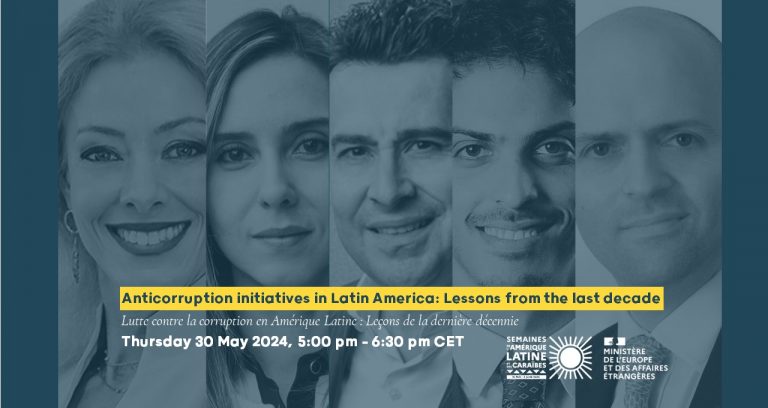Chapter: Dispute Resolution
International Criminal Law, International Courts, and Judicial Affairs
Manish N. Bhatt, Giovanni Chiarini, Katherine Maddox Davis, Beth Farmer, Timothy Franklin, Cyreka C. Jacobs, Stéphane de Navacelle, Sara L. Ochs, Alexander S. Vesselinovitch, Melissa Ginsberg, Marc Weitz and Julie Zorrilla.
This article reviews some of the most significant developments in 2021 made by international courts and tribunals, domestic courts, and legislative developments involving issues of international criminal law, international human rights law, and international public law. This article also includes a section on protecting the attorney-client and work product privileges in internal investigations, which offers practical application for lawyers engaged in cross-border civil litigation and investigations
***
National Courts
A. Developments in French criminal law
This section discusses important recent developments in the field of white-collar enforcement in France. Three developments stand out. First, the goal of aligning the French anti-corruption framework with the best European and international standards led to an evaluation of the Sapin II law by French Members of Parliament, five years after its enactment.[193] The Report, published on July 7, 2021, proposes several ways to improve the legal framework.[194] Second, a new offense of ecocide has strengthened the protection of the environment.[195] Finally, the French Supreme Court issued a landmark decision on corporate criminal responsibility for crimes against humanity.[196]
1. Improving France’s Anti-Corruption Framework
On July 7, 2021, French Members of Parliament, Raphaël Gauvain and Olivier Marleix, published a Report evaluating the Sapin II Law.[197] While their overall review was positive, they recommended fifty amendments to improve it.[198] The Report notes that the French Anti- Corruption Agency (AFA) fulfilled its mission of control and sanction, but to the detriment of its coordination mission.[199] The Report thus suggests a special committee for the fight against corruption, and the redirection of the AFA’s focus to administrative coordination.[200]
The AFA’s control and sanctions missions would then be transferred to the already existing High Authority for the Transparency of Public Life (HATVP).[201]
The Report also focuses on ways to encourage the use of the Judicial Public Interest Agreement (CJIP) by granting more safeguards to those involved and improving the status of whistleblowers as difficulties persist both in the quality of their treatment and in their protection against retaliation.[202] The Report will form the basis of a draft bill to be submitted to the National Assembly in November 2021.[203]
2. The New Ecocide Offense
The Climate and Resilience Act was enacted on August 22, 2021.[204] It strengthens the enforcement of environmental crimes, notably by introducing the ecocide offense,[205] which reinforces the risk for companies that pollute.
The Climate and Resilience Act defines ecocide as aggravating the general offense of environmental pollution when the acts are deliberately committed, i.e., when the offense of air and water pollution[206] or soil pollution[207]of the environmental code, was not accidental but intentional.[208] It is punishable by ten years’ imprisonment and a fine of 4.5 million euros or of an amount corresponding to ten times the benefit derived from the commission of the offense.[209]
3. The Lafarge Case
In the Lafarge, a French company, was indicted for involvement in alleged offenses committed by its Syrian subsidiary, in connection with payments made to the so-called Islamic State and other armed groups in Syria between 2012 and 2014.[210] The issue before the French Supreme Court (Cour de Cassation) was the legal validity of this indictment.[211]
On September 7, 2021, the Cour de Cassation held that “one can be an accomplice to crimes against humanity even though there is no intention of associating oneself with the commission of these crimes.”[212] The Court held that it is sufficient to have had knowledge of the preparation or commission of these acts and to have facilitated them through aid or assistance.[213] There is no requirement that the actor be part of the criminal organization or have participated in the conception or execution of the criminal plan[214] In the Lafarge case, the defendant’s informed payment of several millions of dollars to an organization whose purpose was to commit crimes against humanity was found sufficient to constitute complicity.[215]
In addition, the Court clarified the rules on the admissibility of NGOs in cases concerning crimes against humanity and terrorism financing.[216]It held that only the European Center for Constitutional and Human Rights (ECCHR) was admissible as a civil party with respect to the offense of complicity in crimes against humanity, because ECCHR was the only association that included such purposes when it was created.[217] By contrast, the Court found that that none of the NGOs were admissible as a civil party for the offense of financing of terrorism because the facts alleged were not likely to have caused direct damage to any members of the NGOs.[218] Finally, the Supreme Court confirmed Lafarge’s indictment for the financing of terrorism.[219]











